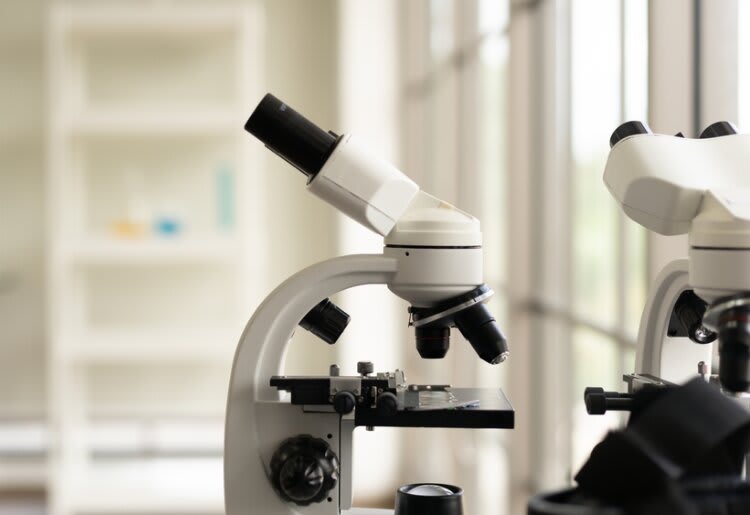Have you ever wondered about your origins and where you truly come from? Many people, particularly those who were adopted, share these feelings. You might be driven by health concerns, curiosity, or a desire to feel a deeper connection and a sense of belonging.
Finding your birth parents is a significant endeavor. Thanks to advancements in DNA testing for ancestry, you can now accurately trace your genetic heritage and possibly discover your biological roots relatively quickly.
As an expert in biomedicine and biophysics, I'll share ten reliable methods to help you in your quest to find your birth parents.
» Unsure about your parentage? Check out our top picks for the best at-home paternity test kits.
1. Set Realistic Expectations
The search for your birth parents can be a joyful experience, but it can also be difficult and emotionally charged. Be prepared for the possibility that you may not find your birth parents or that they may not want to have a relationship with you.
You can better handle challenges and disappointments when you have a clear purpose. Sometimes, birth parents might be gone, have died, or not be open to meeting you. And remember that you need to respect their privacy. They might not be ready to talk or have reasons for not wanting a relationship with you.
2. Engage With Your Adoptive Parents or Caregivers
An open conversation with your adoptive parents may reveal valuable insights about your birth family. They can also guide you on how to access adoption records that could hold key information about your biological parents.

3. Use Adoption Registers
Leverage adoption registers to connect you with resources, databases, and information to track your natural parents. These platforms can be instrumental in your search as they provide a centralized and comprehensive database of adoption records. This can make it easier to locate and access relevant information.
Additionally, adoption registers often offer support services and guidance to help navigate the emotional and legal complexities of searching for your natural parents.
4. Explore Social Media
Launching a social media for family search campaign can help forge connections leading back to your birth parents.
The internet is filled with touching stories of people reuniting with their loved ones. These stories serve as a testament to the power of social media in bridging gaps and bridging the distance between people.
5. Use a DNA Testing Service
DNA testing for ancestry can uncover missing links and connect you with relatives, which might lead you to your birth parents. Consider participating in DNA testing communities where sharing your genetic profile could increase your chances of making meaningful connections.
I'd opt for reputable DNA testing services like 23andMe, AncestryDNA, or MyHeritage, which can provide comprehensive genetic information to aid your search.

6. Access Adoption Records
Familiarize yourself with the adoption laws in the state where the adoption occurred. In most cases, disclosing adoption records requires consent from all involved parties. You can even try using census records for research.
With international adoptions, the search becomes even more intricate due to the varying regulations across different countries. In such cases, I'd recommend that you contact international social services or immigration services.
7. Legal Considerations
Most states seal adoption records once the adoption is done, with regulations about when and how they can be shown. If you want to see sealed adoption records, you might need permission from a court.
The process for getting your original birth certificate varies by state and the kind of adoption.
8. Utilize Online Resources and Support Groups
Online resources, databases, and registries are dedicated to assisting adoptees in their search for birth parents. This includes the Child Welfare website and adoption.com, which offer valuable guidelines and links to begin your search.
Additionally, you can find support in online communities and forums dedicated to birth parent searches.
9. Search for Your Birth Parents' Relatives
If you can't find your birth parents directly, you may be able to find their relatives, such as aunts, uncles, or cousins. You can do this by searching online public records, social media, DNA testing databases, or other methods I mention in this article.
If your parents aren't alive or are unwilling to make contact, you may find some solace in connecting with your relatives.
Learn more about the best DNA testing kits for African Americans.
10. Consider Professional Search Services
If the process becomes too complex or overwhelming, consider hiring a licensed private investigator specializing in birth parent searches. They often have access to databases in addition to the freely available ones.
They can use surveillance and forensic analysis equipment to facilitate the search of your birth parents. Plus, they have the expertise to navigate legal hurdles and can serve as an intermediary contact between you and your birth parents.

Reunion or Closure
With patience, determination, and the support of reliable resources and expert guidance, you might successfully find and even reunite with your birth parents.
However, if your search ends unsuccessfully, don't lose heart. If you're separated from your biological, just knowing what your reality might bring you closure.
» Did you get unexpected DNA results? Here's how to navigate through them.

